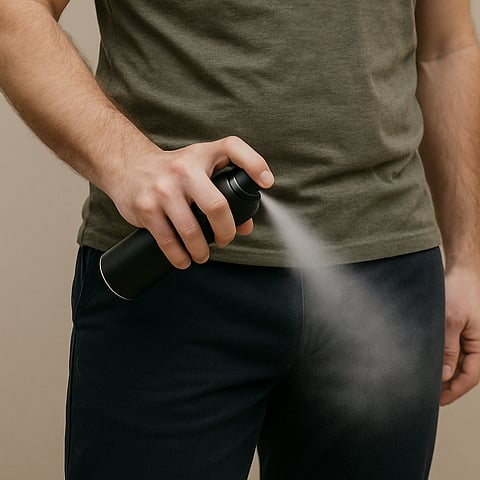
- Union Budget 2026
- Home
- NewsGram USA
- India
- न्यूजग्राम
- World
- Politics
- Entertainment
- Culture
- Lifestyle
- Economy
- Sports
- Sp. Coverage
- Misc.
- NewsGram Exclusive
- Jobs / Internships

Key Points:
Whole-body deodorants have exploded in popularity since 2023, thanks to post-Covid hygiene culture, influencer beauty standards, and cost-of-living pressures
Conglomerates like Unilever and P&G have jumped into the market, tapping into their consumers’ “genital anxiety”
Doctors say they’re safe for use, but unnecessary for most
Sprays and creams promising freshness “from pits to privates” are suddenly everywhere. What started as a niche in 2018 has turned into a global trend, with supermarket shelves now stocked by the world’s biggest personal care companies. In just a few years, whole-body deodorants have gone from a curiosity to a booming category.
The story began with Lume, launched by OB/GYN Dr. Shannon Klingman after patients told her they were embarrassed about intimate odour. She pitched it as a one-size-fits-all deodorant: aluminium-free, baking-soda-free, supposedly safe for anywhere — under breasts, belly buttons, feet, thighs, even genitals. Promising up to 72 hours of protection, it comes as sprays, roll-ons, and wipes. The idea seemed strange at first, but it tapped into a discomfort many people didn’t feel comfortable talking about, and it sold.
Soon, major conglomerates across the US started cashing in on the trend too. Unilever released whole-body deodorants under its brands Dove, Rexona, and Sure, then launched a Lynx version this July for men. Procter & Gamble (P&G) rivalled them with Old Spice, Native, and Secret.
In a report on its market performance, Unilever mentioned that almost 15% of Americans were looking for a full-body odour control product in 2024. Citing a Mintel report, it revealed that Google searches for whole-body deodorants were up 1000% between 2023-24, and that one of the most searched deo-related queries at the time was: What is the best deodorant for balls?
Citing the same report, Melissa Niebes, CEO of Federal Package, a US-based container manufacturer for the beauty and personal care industry, said that 1 in 5 users mentioned using anti-perspirant/deodorants (APDO) on areas other than underarms in 2023, with younger users between 18-34 more likely to do so than people from older categories.
Clearly, the market exists. People are looking for solutions to their private perspiration problems, and personal care brands are providing the supply
See Also: Naturally Change Your Body Odour
Why the Boom?
Even though Lume released the first whole-body deodorants in 2018, it was only in 2023 that the market for this product began to pick up. Since the Covid-19 pandemic, self-care and personal hygiene, along with their relevant markets, have seen an uptick. Younger consumers are influenced further by internet beauty standards.
Since users aged 18-34 make up most of the whole-body deodorants market, companies are using this to their advantage. They are marketing whole-body deodorants through influencers and adapting to consumer trends by investing in natural ingredients and green packaging. With increasing inflation, consumers are also looking for low-cost alternatives to premium scents and all-in-one solutions for their odour problems. Whole-body deodorants meet both demands.
So, do you need these products at all?
Sweat glands are of two types. Eccrine glands, covering most of the body, produce more watery sweat that helps regulate temperature. Apocrine glands, clustered in the armpits and groin, secrete the thicker lipid-heavy sweat that bacteria break down, causing odour. That’s why those areas smell stronger. But regularly washing is enough to deal with this.
Rather than actually needing whole-body deodorants, you are more likely to think you need them, thanks to influencer promotions and personal care companies doubling down on their consumers’ anxieties. Influencers talk about problems consumers may not have thought about – and doubling down on this genital anxiety, as the Guardian calls it, personal care brands are there to provide the solution, albeit with a hefty price tag.
But whole-body deodorants aren’t dangerous either. Many whole-body formulas focus on scents and alternative ingredients, not perspiration. They lack common irritants like aluminium and parabens, which plug sweat pores. But dermatologists still urge caution, especially in intimate zones. Overusing deodorants can cause irritation or pH imbalance on the skin. It is advised to patch test first, avoid broken skin, and stop if anything stings. [Rh/DS]
Also Read:
